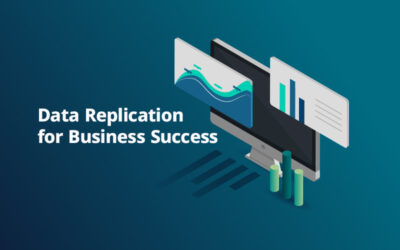The Covid-19 pandemic has put the spotlight on the pharmaceutical industry. However, even before that, the industry has been seeing various developments. In all of these, the services of a business process outsourcing company have been found to be indispensable particularly because there is a great amount of data to process and manage. Many of these trends are here to stay and could well shape the future of the industry.
If there is one theme that dominates much of what’s happening in the pharmaceutical and healthcare industries, it is data. The use of artificial intelligence (AI) and machine learning has contributed to more and more data being processed regularly. Data management is now critically important.
AI for Identifying Patients Based on Eligibility Criteria
AI and machine learning are helping accelerate the process of discovering and developing drugs. While such innovation has been known to help in optimizing and automating the manufacturing process, it also helps in the all-important clinical trial process. For clinical trials to happen, you need patients with relevant symptoms. That’s where AI comes in, helping in identifying patients according to the eligibility criteria. It also ensures the important cohort identification process is cheaper and faster.
There are companies that offer services for identifying patient cohorts through AI algorithms. This also helps in studies to collect real-world evidence (RWE). What the machine learning software does is scan through electronic health records (EHR) as well as doctor notes to find the right kind of patients on the basis of phenotypes. A collection of AI models is also developed for various diseases, so patients can be selected depending on the relevant model.
Drug Discovery and Development
Various machine learning approaches are used such as representation learning, reinforcement learning, few-shot learning, active learning and other methods for drug discovery. Deep learning employs small datasets for optimizing and predicting potential drug candidates.
Computer Simulations
Another direction in which clinical trials are heading is computer simulations, also called in silico clinical trials. This involves providing virtual drugs to virtual patients. The simulation reveals if the medicine brings forth the intended results or causes unintended side-effects.
The advantage of a simulation is that it provides experts with the opportunity to make alterations or modifications to their drug and immediately see what the effects will be. It may all seem fanciful, but Next Move Strategy Consulting reports that the medical simulation market globally was worth $1.69 billion in 2019. It is tipped to attain a CAGR growth of 14.7% and hit $7.64 billion in 2030.
Additive Manufacturing and Precision Medicine
This appears straight from science fiction, but it’s closer than you think. Active research is going on in the field of 3D printing, particularly in relation to creating cells and tissues for regenerative medicine and organ engineering. This could contribute to improving customized care for patients, where each patient is considered a unique individual.
Making Data Available to Third Parties
All through the process of the discovery and development of a drug, there are massive volumes of data involved. Pharmaceutical companies are now therefore open to making critically important data available to outsourcing providers for managing it efficiently. Data management is therefore a major area of focus for pharmaceutical companies.
With advanced analytical techniques now available, real-time as well as historical data is being used for descriptive, prescriptive, diagnostic and predictive analytics. We find these analytics techniques being used on various kinds of patient medical data.
Rocketing Growth of the Healthcare AI Software Market
According to Next Move Strategy Consulting, the global healthcare AI software market could grow at a 48.2% CAGR from 2020 to 2030 and hit $354.47 billion in 2030, from $4.68 billion in 2019.
Patient Feedback for Improved Customer Satisfaction
Patient feedback is also where there is an abundance of data processed. The healthcare industry is getting obsessed with customer satisfaction, for which customer data is of utmost importance. Systems are being developed that enable patients to provide feedback so hospitals and nursing homes can improve their services.
The bottom-line is that there is significantly more data that pharmaceutical companies and healthcare concerns have to deal with now as a result of the various technological innovations and trends we are seeing. Though they’ve been around for long, innovative data processing services have adapted to the times. These and other data management solutions are essential for healthcare companies to truly be successful.




